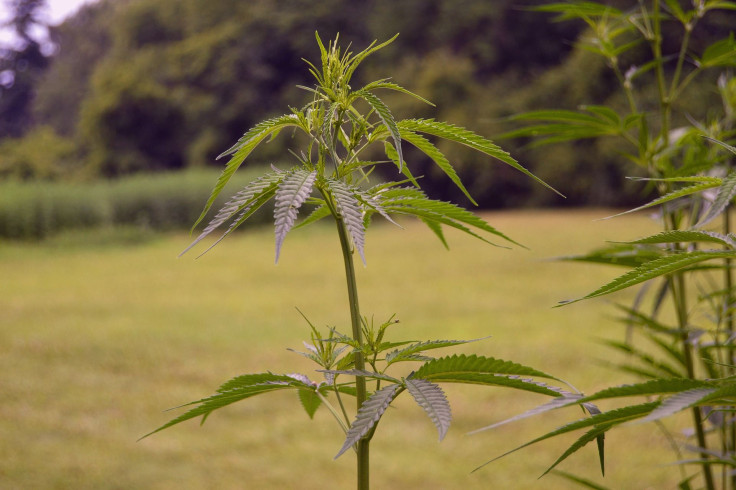Canada’s cannabis industry is bracing for big changes

The Cannabis Act signalled a new dawn for the cannabis industry in Canada. With the bill being passed, Canada has scheduled the legalisation of recreational marijuana on Oct. 17. Other than providing Canadians with easier access to recreational cannabis, the Cannabis Act also gave a few companies the boost they needed to become at the top of the global industry.
This is also a good chance for investors to join in on the green movement, but as with any budding market, they should be cautious. Canada’s cannabis scene is volatile at this point as there are a few concerns for the industry to overcome first.
Will growers meet the demand?
Companies are already gearing up for the end of marijuana prohibition in Canada as with it comes a guaranteed surge in demand for the plant. Citing various reports, Motley Fool says that demand for marijuana in Canada could hit 1 million kg by the end of this year. It adds that even if local growers increase their production output, it might not be enough to meet the demand.

Auxly Cannabis Group CEO Chuck Rifici recently spoke with Nightly Business Report and he speculated that during the first year, there would be a shortage in supply as it had been that way with other countries without marijuana prohibition. Although producers in the country were pushing for better output, there would be a lag in producing quality products.
Since the Cannabis Act was passed only in June, marijuana farmers did not have much time to produce more plants. Marijuana takes 3-5 months before fully maturing. Companies also had to ready permits and plots of land for the cultivation process, so most were not able to begin the cultivation immediately.
Another factor that initially barred cultivators from going full swing in the production of marijuana is the new regulations they were required to meet. Health Canada was even the subject of criticisms after it announced multiple classes of licences for cannabis companies including processing (micro and standard), producers (micro and standard), nurseries, industrial hemp, research, and analytical testing, in addition to medical sales licences.
Since cannabis is a commodity, investors are advised to expect that pot stocks will be prone to volatility as performance will rely heavily on the supply and demand for marijuana.
Exactly how much is the market size?
Another concern for the cannabis industry in Canada is the market size. Analysts speculate that it could be somewhere between US$4-10 billion (AU$5.67-14.17 billion) within the next four years. However, that number is far from final as there is no telling just how popular recreational cannabis will be in the next years.

Many companies are already jumping on the bandwagon by introducing cannabis-infused products. One such company is Heineken’s Lagunitas brand, which announced a few cannabis drinks a few months back. In the US, an array of businesses including cafes, restaurants, spas and luxury hotels have already joined the green movement by introducing cannabidiol (CBD) products and services.
There are possibly more brands eyeing to take advantage of Canada’s active cannabis cultivation scene. This could further put a dent on the local supply even more. The good thing is that there are many top-notch companies in Canada who are willing to support the overwhelming demand for marijuana.
Who investors should trust
Cannabis companies have to worry about these issues as well if they want to make sure they are not going to be left behind. What is most important is that they have the proper resources and technology to keep up with the demand for cannabis. These companies also have the chance to inspire US firms to fight for the industry in their own turf.
One of the upcoming leaders in Canada is Cobourg-based FSD Pharma (OTCMKTS: FSDDF) (CNSX: HUGE). The current mission of the company’s board is to transform the former Kraft plant in Ontario into the world’s largest hydroponic indoor cannabis facility in the world.
Aside from securing a good production line, the company also intends to dip its feet on other legal aspects of the industry like processing, manufacturing, extracting and research and development.
The also owns FV Pharma Inc., which has an ACMPR licence that allows it to farm cannabis under the Access to Cannabis for Medical Purposes Regulations (ACMPR). This means the company also has solid footing on the market for medical cannabis.
FSD Pharma is a publicly traded company on the Canadian Securities Exchange (CSE) under the HUGE ticker symbol. The company presents a good opportunity for investors because aside from its well-planned approach to Canada’s cannabis industry, it also has a good track record on the stock market.
During its first day of trading on the CSE, FSD Pharma broke the record for the most volume traded in a single day. It was a first for the CSE. Using that as a momentum, the company proceeded to break the volume traded records for weekly, monthly and yearly periods. The company was even able to break the yearly volume traded records in under two months after having been traded over 2 billion times.
FSD Pharma is not just working to become a market leader, the company also wants to change the way various governments think about marijuana.
Speaking to Nightly Business Report, FSD Pharma’s Anthony Durkacz is hopeful that they will be able to show the US and the rest of the world that legalising variants of cannabis can lead to a lot of things including good revenue and taxes.
The Canadian cannabis industry is in for major changes come Oct. 17. In the past months, the investment scene was already active with people looking to bank on the growth earlier on. Even more activities are expected once the prohibition is lifted later this month and by then, investors should already have a clear idea on who they should support.
IBT Australia does not endorse any product or practice mentioned here. The article is based on press releases sent for consideration.





















